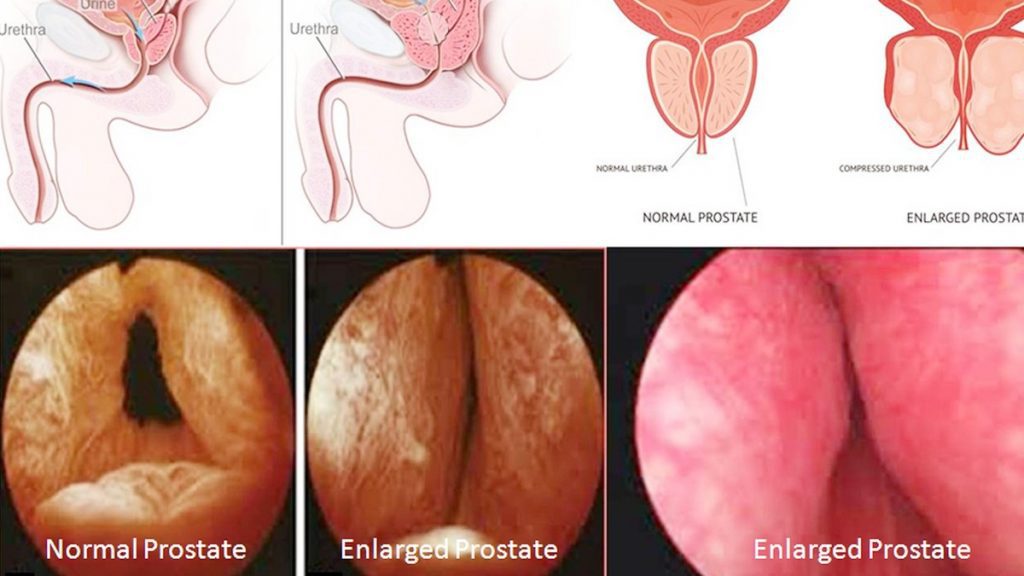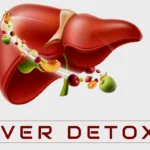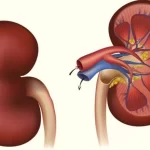Prostate enlargement treatment
The prostate is a walnut-sized gland located near the urethra in men. It is an important part of the male reproductive system. Fluid is secreted from the prostate. This liquid is part of the semen (sperm) and helps keep sperm alive in the female reproductive tract. Prostate enlargement is called benign prostate hypertrophy (BPH) or benign prostatic hyperplasia. This can affect a person’s sex life as well as obstruct the urethra, leading to urinary problems.
Prostate enlargement is common in men over the age of 50 and about 90 percent of men over the age of 80 develop the condition. BPH is not a form of cancer. Generally, it is neither a serious health hazard nor an increase in the risk of prostate cancer.
The exact cause of prostate enlargement is not clear. However, certain factors related to aging, changes in testicular cells as well as testosterone levels, and medical history (the doctor asking questions about past diseases and their treatment) may play a role in the development of the prostate gland. BPH has traditionally been treated through medications and surgery.
What to eat when prostate enlargement?
The enlarged prostate diet is a diet that is followed to reduce the symptoms of benign prostate hyperplasia. Certain foods and beverages have been shown to affect prostate health due to their effects on the testes and other hormones.
Research has found that a diet consisting mainly of meat or dairy products may increase the risk of prostate enlargement and cancer. This is especially true if a person does not include enough vegetables in their diet. A diet rich in fruits, vegetables, and healthy fats is believed to protect the prostate.
Some of the foods that can be included in an enlarged prostate diet are:
- Salmon is rich in healthy fats including omega-3 fatty acids, which help prevent and reduce inflammation within the body.
- Tomatoes are full of lycopene, an antioxidant that may benefit prostate gland cells. Ripe tomatoes in tomato sauce or soup form help to release lycopene and make it more readily available to the body.
- Strawberries, blueberries, raspberries, and blackberries are excellent sources of antioxidants, which help remove free radicals from the body.
- Oranges, lemons, and grapefruits are all high in vitamin C, which may help protect the prostate gland.
- Foods such as red meat, dairy products, caffeine, alcohol, and sodium should be avoided.
Consume these food items at the limit
- Red meat: This increases the level of arachidonic acid in your body, and this, in turn, increases inflammation in the prostate.
- Eggs and poultry: Egg yolks contain high levels of arachidonic acid, which, as mentioned earlier, increases inflammation. Try to eat only the white part of the egg, as it is a good source of protein.
- Processed foods and sugar: Highly processed foods (which include junk food and takeaways) and refined sugar all increase inflammation in your body.
- Caffeine: Avoiding or limiting your caffeine intake, including coffee, tea, and fizzy drinks, can make a big difference in your urinary health.
- Spicy foods: Curries, chili, and hot sauces can make delicious food, but men with an enlarged prostate need to be careful with spicy foods like these, as they can irritate the bladder and prostate, leading to BPH. There may be associated urinary symptoms.
- Dairy: Dairy is usually high in saturated fat as well as irritant chemicals that can worsen your symptoms.
- Alcohol: It is advisable to avoid alcohol as it acts as an irritant to the bladder and prostate, resulting in the need to urinate frequently.
Why does the prostate enlarge in men?
The prostate gland is found in men. As we age, there is a decrease in the male hormone in our blood and the amount of estrogen increases continuously. Due to the increase in the ratio of estrogen, the cells of the prostate gland also start growing. This is the reason why the prostate gland grows involuntarily with age. This can cause problems in the urinary tract, bladder, or kidneys. This condition is called benign prostatic hyperplasia (BPH).
What should not be eaten in the prostate enlargement?
Eat food, not for the taste of the tongue but for your health. Avoid non-vegetarian food as excessive consumption of red meat can be harmful to the prostate. Do not consume alcohol or beer. Do not drink too much tea and coffee as they lead to dehydration and accumulation of toxins in the bladder.
Where does prostate enlargement pain occur?
Pain and swelling in the prostate gland are caused by prostatitis. This causes difficulty urinating and extreme pain. It also causes pain in the pelvic region, groin, and genitals.
How much does prostate enlargement surgery cost?
The cost of prostate laser surgery in India can range from around Rs 38,000 to Rs 2 lakh. This is, of course, a variable and city dependent and it happens in the hospital.
How safe is laser surgery for the prostate enlargement?
Risks of laser surgery may include: Temporary difficulty urinating. You may have trouble urinating for a few days after the procedure. You will need to insert a tube (catheter) into your penis to drain urine out of your bladder until you can urinate on your own.
What is a homeopathic medicine for Prostate enlargement?
Some of the homeopathic medicines used for the treatment of prostate gland enlargement are:
Prostate enlargement treatment with Baryta Carbonica
Common Name: Carbonate of Baryta
Symptoms: This medicine works best in individuals who are generally shy and confused and do not like to socialize with strangers. It is used for the management of the following symptoms:
- mental weakness
- Dysuria
- hardening of the testes
- decreased desire for sex
- premature impotence
- frequent urge to urinate
The patient’s condition worsens when they keep thinking about the symptoms, but these symptoms are relieved when they walk in the open air.
Chimaphila umbellata
Common name: pipsiseva
Symptoms: The use of this medicine can help in the treatment of the following symptoms –
- frequent urge to urinate
- The sensation is as if there is a bulge in the area between the anus and the testicles/vulva.
- Burning sensation while urinating and the patient feels tension before urination. In this position, the patient has to stretch his legs and bend his knees slightly while urinating.
- turning is required.
- prick-like pain in the bladder
- Viscous or bloody mucus in urine
- palpitation of the kidney
- sudden swelling of the prostate
- Discharge of prostatic fluid (fluid released during ejaculation in men)
All symptoms worsen when sitting on pavement or a cold stone or in damp weather.
Prostate enlargement treatment with conium maculatum
Common Name: Poison Hemlock
Symptoms: Conium works well in people who are anxious, depressed, and afraid of being alone. Apart from this, people who are not able to take interest in anything. This remedy helps in relieving the following symptoms –
- body and mental fatigue
- Increased desire for sex but lack of energy
- difficulty passing urine
- not urinating freely
- testicular enlargement and hardening
- being nervous about sex due to erectile dysfunction
All symptoms worsen with sex or lying down physical and mental fatigue, and cold weather, but improve with movement, on an empty stomach.
Prostate enlargement treatment with digitalis purpurea
Common name: Foxglove
Symptoms: Foxglove is very effective in people who have had heart problems or gonorrhea along with prostate enlargement. Apart from this, people who lack enthusiasm, anxiety, and such fearful people who are very depressed can also benefit from this remedy. Foxglove helps to relieve the following symptoms –
- lethargy
- irregular heartbeat and slow heartbeat
- urinating but not emptying the bladder
- The tightness and burning in the urethra as if there is a contraction
- pain and urge to urinate
- inflammation of the urethra
- Severe pain in the bladder, which gets worse at night
- feeling full after urinating
- having foamy urine
- Inability to open the penis (phimosis)
- Extreme weakness in the genitals after sex and ejaculation at night
- swelling of the genitals
These symptoms worsen after a meal and on sitting while feeling better on an empty stomach when out in the open air.
Prostate enlargement treatment with lycopodium clavatum
Common name: club moss
Symptoms: Lycopodium works well in extremely sensitive individuals. Those whose memory is weak, confused, and afraid of being alone. This remedy is prescribed for the management of the following symptoms –
- urinating but unable to empty the bladder, straining to pass urine frequently
- initially slow urine flow
- Pain in the back before urination and pain that stops after urination
- urinating abnormally at night
- thick urine
- impotence
- premature ejaculation
- genital infection
These symptoms get worse by 4 to 8 pm, in a hot environment or with exposure to hot air. Warm applications (such as hot compresses) may also worsen symptoms, but symptoms improve when the patient moves or consumes hot food or drink.
Prostate enlargement treatment with strong serrulata
Common Name: Saw Palmetto
Symptoms: This medicine is beneficial in patients with enlarged prostate with chronic gonorrhea. Strong Serrulata helps in relieving the following symptoms –
- fatigue, apathy, and loss of interest
- sexual anxiety
- difficulty passing urine
- frequent urge to urinate at night
- involuntary urination
- Pain during urination due to inflammation of the bladder
- prostatic fluid discharge
- Testicular shrinkage with decreased sexual power
- severe pain during ejaculation
- chills in sex organs
Staphysagria
- Feeling as if a drop of urine is leaking
- frequent urination
- burning in the urethra during and after urination
- Strong urge to urinate and severe pain even after urination
- involuntary ejaculation
- difficulty breathing after sex
- Ejaculation with back pain, weakness, and sexual neurasthenia (tiredness)
Common Name: Stavesacre
Symptoms: Staphysagria works well in people who are hypersensitive and hypochondriacs. Those who focus on sex-related items. This remedy is often used to address the following symptoms –
These symptoms may worsen in case of masturbation, sadness, anger, and humiliation. Interruption in intercourse and excessive sex can also worsen the patient’s condition. However, the patient feels better after taking rest at night and having breakfast.
Thuja occidentalis
Common name: arbor white
Symptoms: Thuja occidentalis is a remedy for emotionally sensitive people who cry or tremble while listening to music and have fixed thoughts. It helps in the management of the following symptoms –
- Swelling and burning in the urethra
- not urinating properly
- Feeling of leakage after urinating
- pain and urge to urinate
- prickling pain after urination
- a sudden and immediate urge to urinate, which cannot be controlled
- swelling of the foreskin
- pain in penis
- hardening of the testes
- gonorrheal infection
These symptoms are worsened by the heat of the bed at night, between 3 in the morning and 3 in the afternoon, by cold and moist air, by vaccination, after breakfast, and by consumption of fatty foods and coffee. Doing stretching activities with hands and feet provides relief.
What should be the size of the prostate?
The normal size of the prostate is 18 to 20 grams. Every year its size increases by 2.3 grams. If the size of the prostate of a person suffering from this disease increases by more than 100 grams, then it is fatal for the kidney.
Ayurvedic remedies for Prostate enlargement
- Horse Gram: Kulath lentils are also beneficial for prostate cancer. For this, soak the dal of Kulath before sleeping at night. Make a decoction of it on the second day. Apart from this, you can also consume its lentils. Let us tell you that its effect is hot, along with it you can also add asafetida and rock salt. For people who have frequent urination or have a prostate, then it will be beneficial.
- Giloy and Aloe Vera: Make a decoction by taking 20-25 ml wheat grass, 4-5 inch Giloy, 25-50 ml aloe vera, 11-21 basil leaves, and 7-11 leaves of neem. By consuming it, you will get rid of the problem of prostate cancer.
- Gourd: Make juice by adding 7 basil leaves and 5 black pepper to the bottle gourd. Consuming it daily will get rid of many other diseases along with prostate cancer.
- Patharchatta: Patharchatta is also effective in keeping prostate cancer and kidney healthy. For this, make a decoction by putting 10 Patharchatta leaves in water and consuming it.
- Corn fiber: Boil corn fiber in water and make a decoction of it. You will also get benefits by consuming it daily.
- Kachnar: It is useful in relieving swelling and pain of all types of lumps in the body including the prostate. Take half to one teaspoon powder of Kachnar bark or 50-50 ml decoction of its bark in the morning and evening.
- Punarnava: By increasing the blood in the body and due to its tonic properties, it rejuvenates the body, hence it is called Punarnava. This herb is very useful in removing inflammation of the prostate, urinary system, and body.
- Buckwheat: It is beneficial in treating prostate and urinary tract infections. Due to this urine comes freely. It breaks the bladder stone into pieces and removes it from the urinary tract. Take 50-50 ml decoction of a bunion or 3-6 grams powder with water in the morning and evening.
Other Ayurvedic Remedies
- Taking turmeric and shilajit with milk will keep the prostate healthy.
- For prostate cancer, take 2 tablets of Chandraprabha Vati and Gaukshuradi Guggulu in the morning and evening.
- Take one tablet of Vishtinduk Vati in the morning and evening.
- Consume barley porridge once a week.
- Take cow dung.
- Kanchanar Guggul is also effective in keeping the prostate healthy.
- Consuming Panch Trinamool Kwath will also benefit.
- Take 3-4 liters of Liclid every day.
- Drink the decoction of Gokhuru once a month.
- Boil Vrikdoshahar leaves and drinks them. It will also benefit prostate cancer and enlarged prostate.






